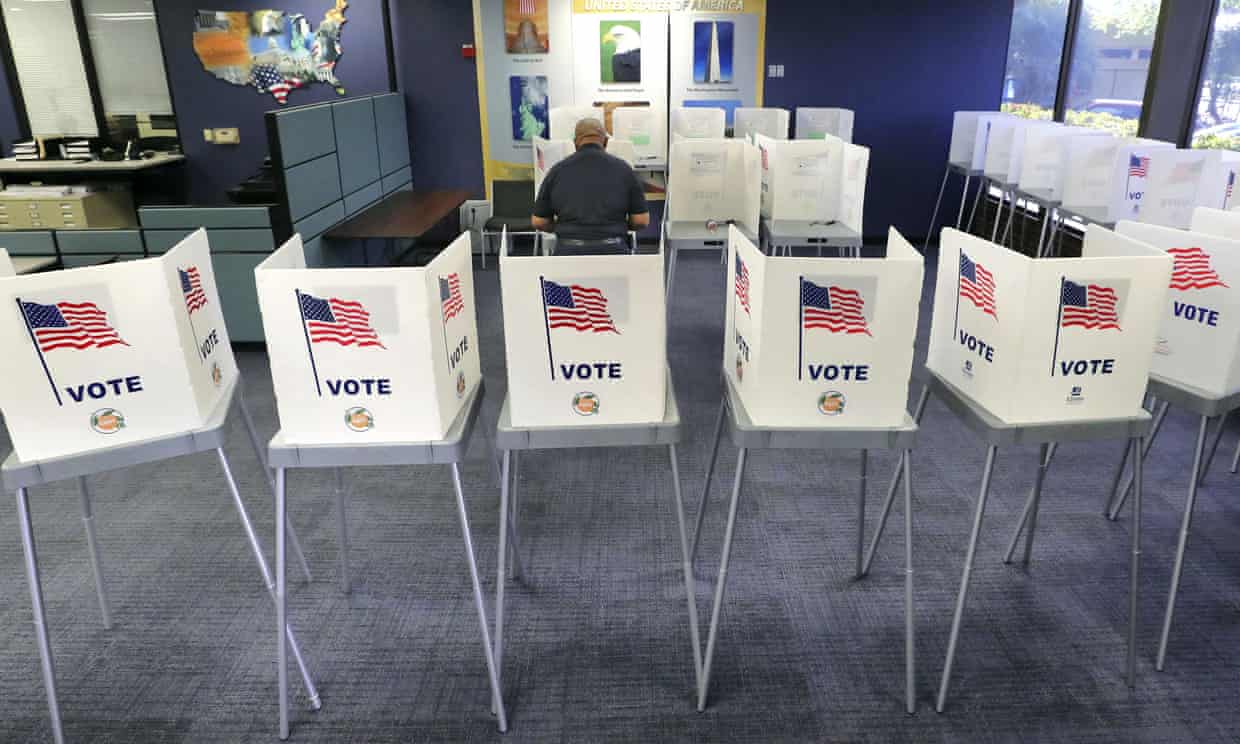
Florida
US judge rules Florida felons can vote without paying legal fees
Judge Robert Hinkle says current law is unconstitutional but his ruling is likely to face Republican challenge in key battleground state
by Associated PressA law in Florida requiring felons to pay legal fees as part of their sentences before regaining the vote is unconstitutional for those unable to pay, or unable to find out how much they owe, a federal judge has ruled.
The 125-page ruling, issued by US district court Judge Robert Hinkle in Tallahassee on Sunday, involves a state law to implement a 2016 ballot measure approved by voters to automatically restore the right to vote for many felons who have completed their sentence.
The Republican-led legislature stipulated that fines and legal fees must be paid as part of the sentence, in addition to serving any prison time.
Hinkle has acknowledged he is unlikely to have the last word in the case, expecting the administration of Republican governor Ron DeSantis to launch an appeal.
The case could have deep ramifications in the crucial electoral battleground given that Florida has an estimated 774,000 disenfranchised felons who are barred because of financial obligations. Many of those felons are African Americans and statistically more likely to vote for the Democratic party. Florida was also the scene of the infamous “hanging chad” controversy in the 2000 US election.
The judge called the Florida rules a “pay-to-vote system” that were unconstitutional when applied to felons who were otherwise eligible to vote but genuinely unable to pay the required amount.
A further complication was how to set the exact amount in fines and other kinds of legal fees owed by felons seeking the vote. Hinkle said it was unconstitutional to bar any voter whose amount owed “could not be determined with diligence”.
Hinkle ordered the state to require election officials to allow felons to request an advisory opinion on how much they owe, essentially placing the burden on election officials to seek that information from court systems. If there was no response within three weeks, then the applicant should not be barred from registering to vote, the ruling said.
Hinkle said the requirement to pay fines and restitution as ordered in a sentence is constitutional for those who are able to pay if the amount can be determined.
The case, Kelvin Jones vs Ron DeSantis, consolidates five lawsuits filed by advocates of disenfranchised felons, including the American Civil Liberties Union, the Brennan Center and the National Association for the Advancement of Colored People.
“This is a tremendous victory for voting rights,” Julie Ebenstein, senior staff attorney with ACLUs voting rights project, said in a statement. “The court recognized that conditioning a persons right to vote on their ability to pay is unconstitutional. This ruling means hundreds of thousands of Floridians will be able to rejoin the electorate and participate in upcoming elections.”
The 2018 ballot measure, known as amendment four, does not apply to convicted murderers and rapists.